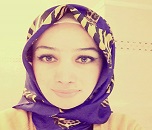17th World Summit on Positive Psychology, Psychotherapy & Cognitive Behavioral Sciences
Toronto, Canada

Deniz Oruc
Uskudar University, Turkey
Title: The effect of attachment styles on marriage compatibility in Turkish couples
Biography
Biography: Deniz Oruc
Abstract
Purpose of the Research: This study provides a comprehensive review of several studies that examined the effect of attachment styles on marriage compatibility in Turkish couples between 2000 and 2016.
Introduction: Marriage is an important life event which impacts a person’s life and behaviour. Compatibility in marriage, according to one definition, is considered concept of balance which means to keep balance of voluntary and required dimensions of the relationship. Marriage and marriage compatibility affects both the couples and and the social network around them.
Methods: A systematic review of relevant articles published in peer reviewd journals between 2000 and 2016 was taken.
Results: A person’s attachment style with his/her mother during childhood has a significant effect on marriage compatibility. Furthermore, an individual’s attachment style determines that person’s relationship with others throughtout his/her life. There are different attachments styles from mother to the child as well as from one adult to another adult. From a child to his/her mother three attachments styles are most common: secure, anxious resistant, and anxious aviodant. From one adult to the other there are four attachment styles: Secure, fearful, dismissive, and preoccupied. According to Ertan (2002), the most common attachment styles in marriages, in insecure attachment is in Turkey. The married couples with highest level of compatibility experience the secure attachment style. Another study concluded that individuals with secure-preoccupied attachment styles have higher marriage compatibility compared to the ones with dismissive-fearful attachment styles. In Turkish culture, being jealous towards the partner or maintaining a very close tie with the partner are considered asset qualities in relationships, therefore individuals with preoccupied attachments style are assessed with higher compatibility rates.

